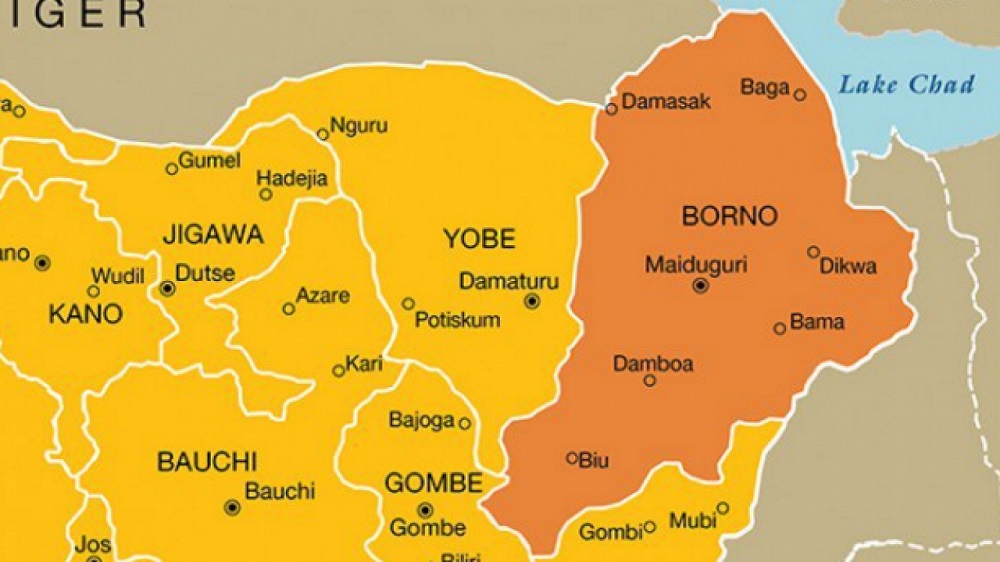News
Discover the regions on Earth where snakes are not found

Snakes are the most versatile species, with over 3,000 species, and are found on almost all continents and almost in all kinds of environments from deserts to rainforests. They can thrive in most climates and various habitats. According to the reports, there are many parts of Earth that exhibit a remarkable absence of snakes, and this can be attributed to various factors such as geographic isolation, extreme climatic conditions, or adverse environmental conditions that make survival hard for them. The regions themselves are an exception to the rule since the conditions here cannot favor the existence of snakes.
Some such areas include Antarctica, New Zealand, Ireland, and most of the Pacific islands. In many of these regions, strong laws and the natural barriers in place have resulted in snakes never establishing themselves to begin with; thus, one finds unique ecosystems in danger of introduction of non-native species otherwise. Explore more about the places where snakes are not found.
Snake-free places on the Earth
Antarctica
Antarctica is the only continent that is snake-free on Earth as per reports. This is because the continent has an extremely cold climate. Thus, Antarctica is inadmissible for the snaky reptiles that are cold-blooded. Snakes are ectothermic, meaning that they regulate their body temperature through external sources of heat. Snakes could not survive in Antarctica since the environment has ice and snow, and the extreme coldness is such that reptiles would not be able to find warmth for them to work.
Antarctica does have other wildlife including seals, penguins, and marine mammals. However, this list does not include reptiles, which snakes belong to.
New Zealand
New Zealand is one of the very few countries in the world that is entirely snake-free, which is because it is relatively isolated in the South Pacific. Geographically, New Zealand is separated by huge oceans, and isolation did not allow snakes to naturally migrate to the island nation. Although sea snakes, including the Yellow Lipped Sea Krait and Yellow-Bellied Sea Snake, can occasionally be seen in the waters around New Zealand, they do not live on land.
New Zealand has very strict laws regarding the importation and keeping of snakes within the country, whether as pets or in zoos. This is to preserve the unique ecosystem of the country and to avoid any ecological imbalance that might be caused by the introduction of non-native species.
Ireland
Ireland is also one country that has no snakes, and fossil records show that snakes never colonized the island. Snakes are absent in Ireland because of its chilling climate and historical geographical separation from the main lands on the continent according to the reports. Snakes in their nature need warmer climates to conserve their body temperatures because Ireland has a temperate climate that is not healthy for snakes to survive. Snakes are not native to Ireland; however, some species exist in zoos or kept as pets but don’t occur naturally.
It is so interesting and mythical that snakes have never been found in Ireland, where popular legends or stories explain that might have been due to a historical event or because of Saint Patrick’s influence.
Greenland
Greenland is an Arctic country with no native snakes. Because it’s not favorable due to its unfriendly climate, long winters, and little sunshine that the snake species don’t find friendly because snakes are cold-blooded animals surviving well in warm conditions. Even though there is no snake species known to be originally found in the country of Greenland, people are permitted to keep domesticated snakes under local authority permissions.
This has resulted in stringent laws on importing and even owning the exotic pets to conserve the sensitive ecosystem of the Arctic and not have the alien species disturb the fragility of the ecosystem in that area.
Iceland
Snakes can’t be found in Iceland because the weather is extremely unforgiving and biting. Geothermal activities coupled with volcanic soil make most of the reptiles inapplicable to the environment of the island. However, there are some that call the sand snakes of Iceland. Actually, these are not snakes but mere wind formations on sand. Snakes could not survive the cold environment of Iceland, and no record of snakes exists in this island, neither as a native species nor an established population.
Alaska
Alaska, being very much north, lacks native snake populations. The winters are long, and the light is scarce here, making the survival of the cold-blooded animals like snakes extremely difficult. There have been instances of nonnative snakes, but they are a result of escapes from pets in some cases; they are never established populations. Snakes cannot be seen throughout the year in this harsh environment, and the only reptile species in Alaska is the sea turtle, which lives in warmer ocean waters. There are no snakes in Alaska because the state has a cold climate and there is no place there where snakes might live.
Hawaii
The other snake-less place is Hawaii. Hawaii is a group of islands located in the central Pacific. Snakes cannot access these islands through geographical isolation. The surrounding ocean barriers contribute majorly to how snakes do not reach these islands. Although some sea snakes occasionally appear offshore of Hawaii; they are non-land reptiles. Hawaii has also established very strict laws banning the importation and possession of snakes as it strives to protect its delicate ecosystem and ensure no non-native species is introduced into the system to cause a mismatch of the native wildlife.
Cook Islands
According to the reports, no snakes are found in Cook Islands, South Pacific. Isolation is one aspect that has seen many of the islands in the Pacific have no snakes. The flora and fauna diversity present on the islands vary from those of areas that comprise snakes. In the Cook Islands, the uniqueness of the place from the ecologic perspective emanates from their snakeless characteristic.
Cape Verde
Cape Verde is an island country off the west coast of Africa. It has no native species of snakes in its islands and is one of the few regions without snakes. Apart from having no snakes, Cape Verde has few venomous animals, making it a relatively safe destination for travelers. It has become a favorite tourist destination for people who want to have a snake-free holiday because of its lack of snakes and other dangerous wildlife.
Pacific Islands
Apart from the Cook Islands and Cape Verde, there are many other Pacific Islands, including Tuvalu, Nauru, Kiribati, and the Marshall Islands, which are snake-free. This is because the islands have isolated ecosystems that have never been colonized by snakes. Though some of the islands have sea snakes in their surrounding waters, they do not have any native land snakes on them. Geographically, the regions are cut off, so snakes cannot naturally migrate there.
Snake-free regions on Earth highlight the fascinating interplay between geography, climate, and ecological balance. From Antarctica’s icy terrain to the isolated Pacific islands, these places remain untouched by snakes, offering unique ecosystems and insights into the adaptability of wildlife. Whether due to natural barriers or stringent conservation laws, these areas provide a safe haven from snakes, making them intriguing destinations for those seeking a reptile-free environment.
Credit: timesofindia.indiatimes.com
News
TETFUND threatens to cut financial support to non-performing institutions

The Tertiary Education Trust Fund (TETFUND) has threatened to cut financial support to beneficiary tertiary institutions that fail to meet performance benchmarks or mismanage allocated funds.
The agency said it would de-list such tertiary institutions from its support programmes.
Executive Secretary of TETFUND, Sonny Echono gave the warning at a one-day strategic engagement with heads of institutions, bursars, and heads of procurement of the agency’s beneficiary institutions in Abuja on Monday.
Echono said the policy was not meant to punish, but rather safeguard the credibility and impact of TETFUND interventions.
He said: “Let me be clear, institutions that consistently fail to access, utilise or retire funds appropriately, or that fall short of enrollment and academic performance thresholds, risk being delisted as TETFUND beneficiary institutions.”
He also disclosed the intention of TETFUND to ensure that its resources were directed towards institutions that were committed to high standards of governance, transparency, and accountability.
Echono said the strategic engagement was targeted at addressing recurring challenges in Nigeria’s tertiary education sector, improving project execution, and enhancing the quality of education.
A key focus, he said, was the Academic Staff Training and Development (AST&D) intervention.
He said due to rising costs and incidents of scholars absconding, the foreign component of the TETFUND Scholarship for Academic Staff (TSAS) was suspended as of January 1, 2025 with emphasis now shifted to cost-effective, locally driven training.
Echono said this year’s intervention budget prioritises consolidation, sustainability, and the completion of abandoned projects.
He added: “This engagement is not merely a meeting but a strategic convergence. It is designed to address recurring issues of concern, streamline project implementation, and enhance the overall quality of tertiary education delivery in our nation.
“As we move forward, let us approach today’s discussions with openness, collaboration, and a shared vision to elevate our institutions and the students we serve.
“Together, we can strengthen accountability, drive innovation, and ensure that the legacy of TETFUND remains impactful, equitable and enduring for generations to come.”
Executive Secretary of the National Universities Commission (NUC), Professor Abdullahi Ribadu emphasised the importance of the meeting for evaluating the implementation and impact of TETFUND – supported projects in higher education institutions.
The NUC chief, who was represented by Dr. Joshua Atah appreciated TETFUND’s vital role in improving infrastructure, research, staff development, and academic quality, stating that without its support, public education would struggle to survive.
Prof. Ribadu acknowledged the adaptability of TETFUND’s policies, such as suspending international scholarships to reallocate resources more effectively.
He urged tertiary institutions to be more responsive and ensure that interventions were relevant and efficiently executed.
Ribadu encouraged judicious and timely use of funds and called for open and constructive dialogue during the engagement.
“This calls for greater responsiveness also on the part of the institutions. This responsiveness also includes the areas of the design and implementation of these interventions to ensure that they remain relevant, impactful, and aligned with the future of education in Nigeria.
“It’s also important that we judiciously utilise these resources, and not just judicious utilisation but also in a timely manner so that we don’t lose the fund,” he said.
News
Again, Boko Haram reportedly attack military base in Borno

Suspected Boko Haram terrorists have attacked a Nigerian Army base in Marte , the headquarters of Marte Local Government Area of Borno State with casualties
The terrorists attacked the 153 Task Force Battalion’s Forward Operation Base (FOab) at around 3am on Monday, according to the locals and security sources.
They said the terrorists also burnt armoured tanks and seized arms and ammunition from the base during the attack.
“ISWAP has taken over Marte. An unspecified number of soldiers were killed, some captured, and many others fled towards Dikwa.
“They are currently at the 24 Task Force Brigade in Dikwa,” a source said.
Recent terrorist attacks have targeted several military formations in Borno and Yobe, including Sabon Gari and Buni Yadi, with the latest being the attack on the 153 Task Force Battalion.
Attempts to reach Maj-Gen Markus Kangye, Director of Defence Media Operations, were unsuccessful as he didn’t answer calls or respond to text messages.
News
Taraba Woos Global Investors Ahead of Landmark Economic Summit

…Taravest 2025 to Unlock Opportunities in agric, energy, mining
…as state offers peace, resources, incentives
By Gloria Ikibah
The Federal Government and Government of Taraba State have called on the international community and private sector players to partner with Taraba in unlocking the state’s massive investment potentials across agriculture, energy, mining, and tourism.
This call comes ahead of the Taraba International Investment Summit (Taravest), with the theme: “Unlocking Taraba’s Investment Potentials, Advancing Agriculture, Energy, Mining and Industrialization for sustainable development “, scheduled for May 21, 2025, in Jalingo, Taraba state.
Speaking at the diplomatic preparatory briefing in Abuja, the Minister of Foreign Affairs, Ambassador Yusuf Maitama Tuggar, who was represented by Ambassador Anderson Madubike commended the initiative, describing it as a platform that aligns with Nigeria’s economic diplomacy agenda.

“I wish to commend His Excellency and indeed the Government of Taraba State for convening this timely summit, particularly at this time when the whole world is in need of creating a travelling investment climate through co-location. There is therefore the need for partnership between governments, private sector players, and civil societies,” the Minister stated.
He emphasised that Taravest represents “a collective pursuit of development and prosperity, not only for Taraba State, but indeed for the whole world.
“They have enormous resources—we’re talking about gold, we’re talking about uranium, and many others, and of course agriculture, fertile land, which you know, food, is the way to go”, he added.
Ambassador Madubike noted that the theme for the summit, themed “Unlocking Taraba’s Investment Potentials: Advancing Agriculture, Energy, Mining, and Industrialization for Sustainable Growth,” is expected to attract both local and international stakeholders.
“Our presence here signifies a commitment to making Taraba a model of investment and sustainable development,” he said.
In his address, the Executive Governor of Taraba State, Dr. Agbu Kefas, expressed gratitude to the Federal Ministry of Foreign Affairs and extended an open invitation to diplomats and investors.
Dr. Agbu highlighted the significance of the summit as the first of its kind since the state was created in 1991, and laid out three clear objectives.
“It is my great honor to welcome you to the Paivota Preparatory Meeting for the Taraba State International Investment Summit, Taravest 2025, in just nine days to come.
“To orient you to Taraba’s untapped potentials and the structure of the summit; to inspire your confidence in our security, infrastructure, and business environment; and to enlist your support in rallying investors, technical partners, and development agencies”, the governor said.
He emphasised Taraba’s strategic strengths, citing five core advantages, this is as he reassured guests about the state’s security readiness.

“Peace and security, over 44,000 km² of fertile land for agriculture, massive hydropower and solar capacity, rich mineral reserves including gold, barite, and lithium, and growing opportunities in tourism and the digital economy.
“I want to assure you that we have coordinated with the state security services, the Nigerian military, the Nigerian police, and our traditional rulers… to guarantee your safety”, he added.
The summit, he explained, will feature B2B and B2G matchmaking, policy dialogues, PPP frameworks, and guided site visits to model farms and mining zones.
“Taravest 2025 is more than a conference. It is a statement of fact that Taraba is open for transformative partnership. I invite you to leverage your good offices to mobilize your government and business communities,so that together we will convert promise into progress and unlock a future of shared prosperity”, Dr. Agbu added.
He also urged embassies to submit the names of participating investors and delegates by May 16, 2025, to ease logistics.
Taravest 2025, which will hold at the Banquet Hall of the Government House in Jalingo, aims to attract capital, expertise, and innovation to transform Taraba into a thriving investment destination and economic powerhouse.
-

 News20 hours ago
News20 hours agoJust in: Wike admits Fubara alongside 2 govs visited him on reconciliatory moves
-

 News24 hours ago
News24 hours agoRivers crisis: Wike’s aide mocks Fubara, advises him to honourably quit since his spirit has left Brick House
-

 News17 hours ago
News17 hours agoGo home to face corruption probe, protesters in London tell Kyari (Photos)
-

 Economy22 hours ago
Economy22 hours agoSEE Black Market Dollar (USD) To Naira (NGN) Exchange Rate Today 12th May 2025
-

 News23 hours ago
News23 hours agoJapa! UK to End Overseas Care Worker Recruitment to Cut Migration
-

 News24 hours ago
News24 hours agoJust in: Chris Piwuna emerges as new ASUU President
-

 News20 hours ago
News20 hours agoAMCON, Others Dragged to Court Over Alleged Undervalued Sale of Ibadan Disco for $62m
-

 News14 hours ago
News14 hours agoUK unions slam Govt’s decision to end care worker visas

















